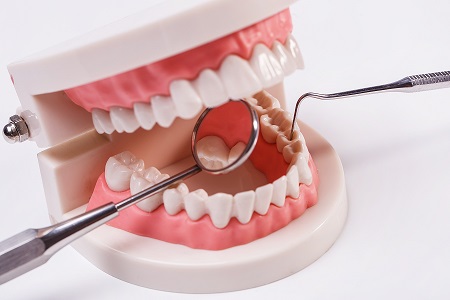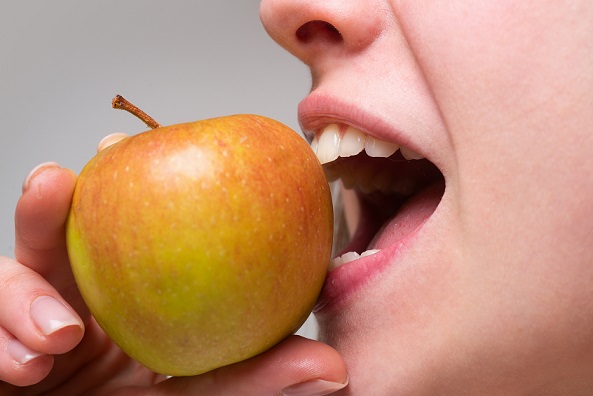Dental Care
Diabetes Dental Care

Diabetes has an impact on your body’s capacity to handle sugar. Everything you consume is converted to sugar and utilised for energy. In Type I diabetes, the body does not produce enough insulin, a hormone that transports sugar from the bloodstream to the cells that need it for energy.
The body ceases reacting to insulin in Type II diabetes. Both conditions result in excessive blood sugar levels, which may harm your eyes, nerves, kidneys, heart, and other organs.
So, what does this have to do with your smile, and how can you keep it safe? To begin, it’s critical to understand the symptoms of diabetes and the functions they play in your mouth.
Diagnosis and Tests
Dental problems that can occur because of uncontrolled diabetes are:
- Bleeding gums
- Periodontitis
- Generalized alveolar bone loss
- Mobility of teeth. Other common findings are xerostomia (decreased salivary flow, dry mouth)
- Dental decay
- Attrition and abrasion of teeth
- Oral non-healing ulcer
- Sensitivity to hot and cold sensations
- Early precancerous lesions like leukoplakia, lichen planus
- Oral fungal infections like candidiasis

Treatments and Infrastructure
- Dental consultation
- Oral prophylaxis (scaling)
- Simple and surgical extraction
- Incision and drainage of dental abscess.
- Flap surgery and curettage
- Dental fillings (cosmetic fillings)
- Replacement of teeth.
- Partial & full replacement
- Dental implants
- Tempero mandibular joint problems
- soft splint, hard splint therapy
- Bite-raising appliances
- Oral biopsy
- Root canal therapy and crowns.
- Dental trauma (fracture etc)
- Orthodontic treatments
- Pedodontic treatments
Frequently Asked Questions
Dental pain (pulpitis) increases more on lying down. Dental pains are more during night hours compromising the patients sleep, chewing efficiency and oral hygiene. The above conditions will lead to stress that can elevate blood sugar levels.
Dirt deposits (plaque and calculus) will lead to gingival inflammation. Gingival inflammation when untreated will lead to periodontal disease. Periodontal disease progresses to bone loss leading to decrease in mobility of teeth and tooth loss.
If missing teeth are not replaced, the remaining teeth migrate to the edentulous space, causing disturbance to the occlusion of tooth contact.
Chewing efficiency of the patient decreases and food gets stuck in the spaces in between the teeth. Increase in workload load for the remaining teeth can lead to occlusal attrition. Unilateral or single side chewing leads to tempero mandibular joint problems (jaw problems). If food is not chewed properly, a patient may develop digestive disturbances.
Diabetic patients are recommended to take greens, vegetables and fiber rich food and less carbohydrate. Patients who are partially edentulous, with loose mobile tooth or dental pain, chew their food partially and swallow which leads to indigestion, acidity, gastric problems etc. Patients with the above problems tend to eat soft food which is low in fiber content and high in carbohydrates which can elevate the blood glucose level.
It is mandatory to have a regular dental checkup once in 6 months which can avoid major dental problems like periodontitis.
Patients with regular brushing habits, mouth gargling habits can also deposit plaque and calculus which is the causative factor for periodontal disease. Regular brushing cannot approach all surfaces of teeth and hence thorough cleaning is needed from time to time. Dental cleaning can prevent dental diseases and their progression.
